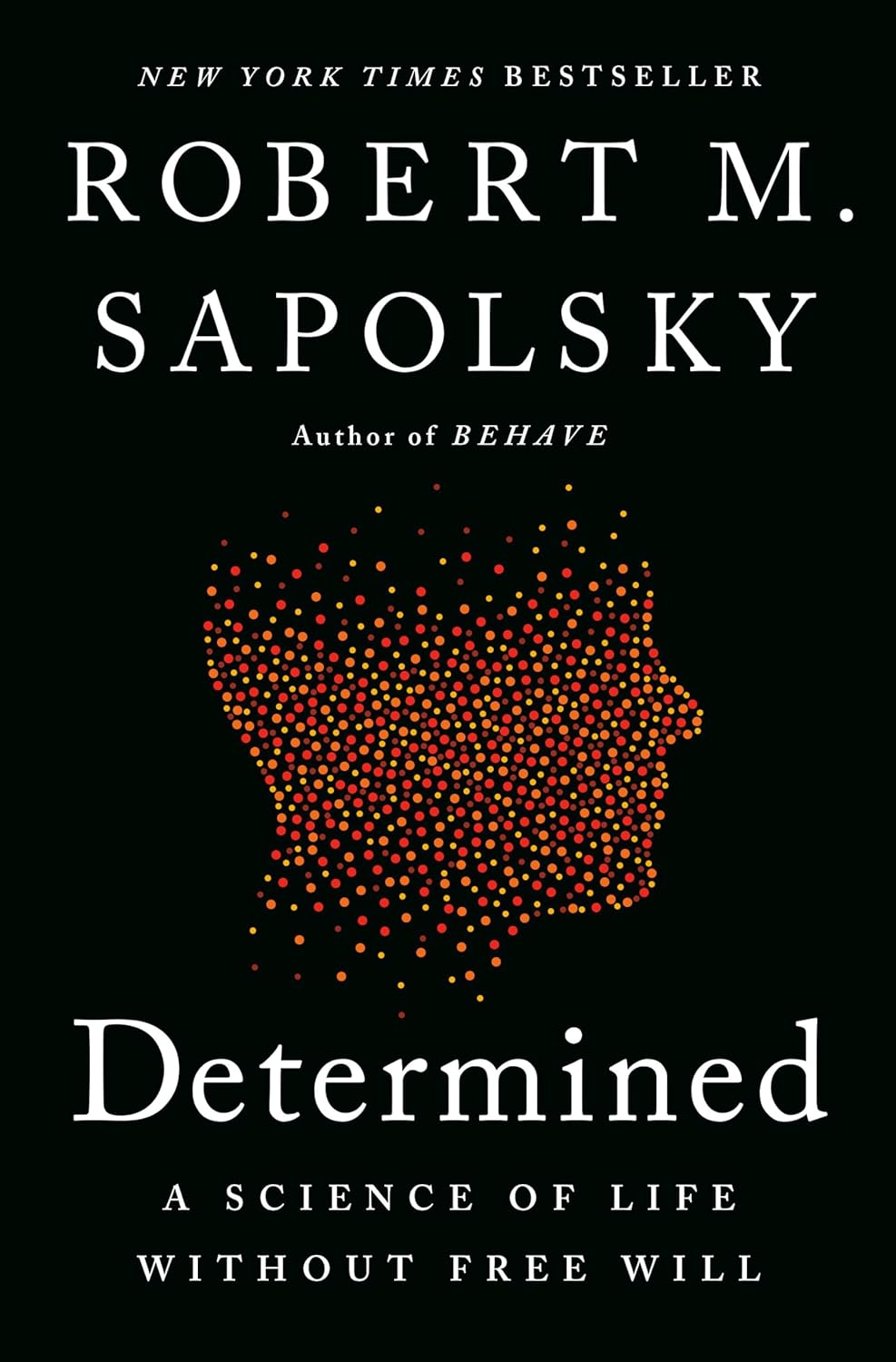Here's what I'm reading:
Show


Show


Show


Show


Show


Show


I'm going to stop reading A Dance with Dragons and the two Star Wars books for now and wrap up Empire, Incorporated and Determined while I continue on with Das Kapital.
Bonus question:
What do you PLAN to read later on?
Enjoy!

Because they end up having to posit some distinction between the person/consciousness/will and the physical system (body) making the choices. Are the decisions I make/actions I take deterministically bound by the physical reality of my bodily system and the environment around it? Maybe, but I am that bodily system. The particularities of that bodily system and the processes by which it acts - whether determined in some broad physical sense or not - are literally the expression of my will. Will has no need for some outside source or driver to legitimize it. Therefore, the actions I takes are my own. There is no distinction between myself and the system.
Denying free will based on determinism always (in my experience) ends up acting like I am some passive observer separate from my body, which behaves without my input. That's basically gnostic dualism, where I am a soul trapped in a material body.
(None of this even touches on the fact that absolute determinism is non-falsifiable)
The mental feeling of making choices and those choices being predetermined by material conditions aren't mutually exclusive. I use my will to make all kinds of choices, and I feel like I'm making them, but my decisions are still always a product of my environment/genetics/whatever.
It's why I don't feel like arguing about free will is particularly productive, since the actual reality doesn't change how that experience feels for people. It's like arguing about whether we live in the Matrix.
I'm not referring to the mental feeling. The system making those choices - my body - is me. It is the entirety of my being, completely synonymous with myself. That system processes inputs and performs outputs based on material rules. That process is the expression of free will. I am not a mental feeling inside of a disconnected body. I am the body. I am the system. To posit otherwise is non-materialistic.
It does not matter if my choices are deterministic. They are still my choices. There is no separation between me and the deterministic system. I am the deterministic system. The only definition of free will this doesn't meet is one that is arbitrarily spiritual/non-materialistic, as if free will by necessity must exist outside of physical reality and laws. I don't see any reason why that must be the case.
(again, assuming the premise of determinism is true, which is non-falsifiable)
It sounds like you're combining agency into your definition of free will. Yes, the mechanisms of your body's behavior (choices) are occurring inside your body, you have agency. But, Free Will implies that the mind has the ability to direct those choices beyond the realm of the material world's laws (i.e. physic; most especially, inertia.)
Does it? I don't see why that's the case. This claims that there is simply no such thing as a materialist concept of free will. That's creating a definition so narrow that it cancels itself out. In what way is free will different from agency? You operate from an assumption that the "the mind" is only valid if in some way immaterial, but why should that be?
I mean, really, what is the difference between free will and agency? If your definition of agency is just free will but material, then nothing about the conclusions you draw is any different from a materialist conception of free will and you have achieved nothing philosophically or scientifically.
To be honest, I'm not really interested in getting into it, I just wanted to clarify a conflation I thought you were making. You wanna hold on to those definitions it's fine by me.
I don't know if we should be taking the concept of an immutable "you" as a given here - plenty of philosophers have wrestled with the apparent illusory nature of the self. That said, I would argue that free will and the self, while related concepts, aren't entirely the same thing. Plenty of behaviors (some of them complex!) happen in the absence of conscious volition. Your brain regulates your body without your conscious attention; thoughts arise unbidden. Without intending to you can find yourself daydreaming or stuck in a memory of an embarrassing situation that happened years ago. There's a definitional problem where defining free will in a way that is (a) compatible with what we know about the physical workings of the brain and (b) accounts for our lived experiences of its many limitations requires positing something not bound by the classical laws of physics that's still capable of interacting with the physical matter of the brain (wherein we get mind-body dualism) or results in something with severely limited explanatory power for why people behave the way they do.